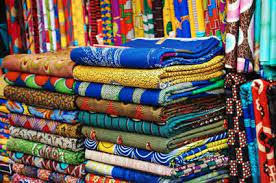Made in Nigeria goods refer to products that are either made entirely with locally sourced raw materials and packaging or products that are produced locally but may incorporate partially or fully imported raw materials. This distinction is important as it directly affects the economic impact and sustainability of the local industry.
Products made with one hundred per cent locally sourced raw materials and packaging are those in which every components, from the raw materials to the packaging materials, were sourced and manufactured within Nigeria. Good example is a soap company that uses locally grown herbs and oils for soap production, locally produced packaging materials, and local labour for manufacturing.
On the other hand, products that are locally produced with partially or fully imported raw materials are manufactured in Nigeria but rely on imported materials due to limited local availability or constraints.
Products made with locally sourced materials contribute more directly to the local economy, supporting local farmers, manufacturers, and suppliers. This leads to income generation, and overall economic growth within the country.
Moreover, Products relying on locally sourced materials are often more sustainable and environment friendly. They reduce carbon footprints associated with transportation, promote sustainable farming practices, and encourage the utilization of local resources.
Again, Local sourcing stimulates the development of the entire value chain, including farming, processing, manufacturing, and distribution. This creates opportunities for small and medium scale enterprises across various sectors.
While imported raw materials can sometimes offer higher quality or unique features, relying solely on imports can create dependency and vulnerability to external market fluctuations. Local sourcing provides more control over quality, consistency, and supply chain resilience.
Patronizing made in Nigeria goods also boosts the economic stability of Nigeria and enhances the development of the country as manufacturers will no longer go through the rigours of sourcing for foreign exchange which, no doubt, depletes the economic development of the country.
Despite other advantages and economic benefits of patronizing made in Nigeria goods, the measure will no doubt, showcase the nation’s cultural values to foreign investors, as well as provide jobs to millions of Nigerians who are roaming the streets in search of non existing jobs.
Today, Nigerian manufacturers have come of age and are slowly overtaking western nations and other advanced countries in the quality of locally produced goods. Shoes and sandals locally produced in Aba, Abia State, can compete favorably with Italian shoes or those produced in other advanced countries of the world.
Similarly Aba Tailors are among the best in the world and dresses sewn in Enyimba City are second to none. In the same vein, vehicles manufactured in Nigeria are also of high standards, durable and consistent with international best practices. One rarely knows the difference between INNOSON produced vehicles and those from abroad until one sees the trademark, while electricity cables, lubricant, mattresses and pillows produced in Nigeria are the best in the world. In the agricultural sector, Nigerian rice is among the best in the world as it is natural and very nutritious. Unless Nigerians exports outgrow imports, the balance of payment will remain negative, which is not healthy for the national economy.
The Federal government should, as of necessity, encourage the use of made in Nigeria products in the State House, National Assembly, States and the entire country. By so doing, the local industry will not only thrive, but will also generate revenue for the country and earning foreign exchange.
The federal government should also ban the importation of goods that are produced in Nigeria. This will encourage manufacturers to break even.
The Federal government should provide enabling environment, improve free trade zones in the country, reduce taxation on companies that manufacture goods, boost electricity, provide long-term and short-term loans for producers and improve the national transportation system.
To encourage the promotion of made in Nigeria goods, consumer education is necessary to enlighten consumers on quality, variety, and benefits of locally made goods.
Buying goods made in Nigeria reduces the demand for foreign currency, thereby conserves foreign reserves. It also encourages entrepreneurship, innovation and growth of local industries.
While President Bola Tinubu continues to fulfill his renewed hope mantra, every Nigerian can cause a big turnaround by patronizing made in Nigeria goods and services for the upliftment of the economy.
Written by ABUCHI NWOZOR





Comments are closed for this post.